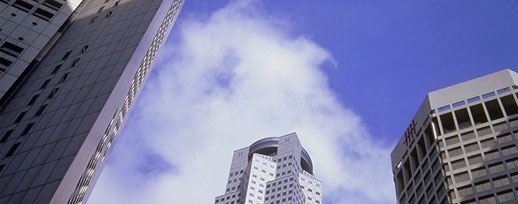
List of Different Closing Costs
Expenses for purchasing new homes or properties include three general areas: the actual price of the home, the mortgage, and closing costs. Most people are familiar with the first two real estate transfer costs, but closing costs, which involve a myriad of fees paid during the transfer to appraisers, lawyers, and insurance agencies, can make up as much as 3%-5% of the total real estate purchase price.
For the most accurate estimates, we suggest that you ask a lawyer, real estate agent, lender, or other real estate professionals for help. However, we have provided here a list of the most significant mortgage closing costs and real estate closing costs that you should be aware of.
Closing costs vary by state, as well by country. Canadians can learn about their own closing costs at the Bank of Montreal website.
List of Important Closing Costs
- Title Search- probably the most emphasized of all closing costs. This records the proper ownership of the land and the home, and the property exchange that is about to take place. It makes sure that your new home has no outstanding liabilities relating to the land, or any significant damage history that the seller failed to mention, such as unpaid taxes and mortgages or anything illegal past including fraud. Doing this step with care is vital as it will guarantee a future without troubles relating to the ownership and value of the land. A Title Insurance protects the owner against anything that the title search agency failed to uncover or something not documented in government records, including legal fees and costs relating to the property title. Look around for an affordable title insurance, and be sure to ask the seller about his rates.
- Credit Report- the report usually costs $50 and could be supplied by any accredited credit bureaus. The largest are Equifax, TransUnion, and Experian. We highly recommend Equifax, as our visitors have had the most success with in the past.
- Brokerage Fees- these are the fees paid to the real estate agent for finding your perfect property, and negotiating on your behalf. This is calculated as a percentage of the closing sale price, and probably will make up the largest portion of your closing costs.
- Mortgage Application Fees (or Origination Fees)- paid to the mortgage lender. Think of this as your normal fees for a loan application. The lender is responsible for the preparation and the submission of a proper mortgage. This may be paid ahead of time, but are most often associated with mortgage closing costs. If you are applying for a mortgage on which you pay a 20% or lower down payment, a special rate may apply called High Rate Mortgage Application Fees.This is usually non-refundable if the mortgage loan is rejected, or if you have second thoughts and leave an open offer on the table.
- Mortgage Insurance- this is paid to the mortage insurer or lender. This mortgage closing cost is associated for those who apply for the High Rate Mortgages, as the buyers are more likely to default. These could cost up to 1-3% of your mortgage.
- Legal Fees- costs paid to your lawyer for the traditional registration costs, title search, title deed (see above), as well as the paperwork to record the exchange of the property.There is usually no way to avoid these costs and are required by contracts and mortgage lenders.
- Recording Fees- For entering of the exchange of property into offical government documents.
- Inspection Fees- this covers the costs of a professional checking your new home or property to make sure that there is nothing wrong with it that you are unaware of.
- Appraisal Fees- mortgage lenders will ask for a appraisal from an accredited real estate professional to make sure the selling price (and the mortgage alloted) is not too high, of which you will also have a copy. This cost is normally low and proportional to your home value, and will range in the low-hundreds. It covers things like your home location, size, maintenance, and use.
- Land Survey Fees- to confirm the dimensions and size of the property, and make sure no other buildings have been set up on your property. Usually costs around $300.
- Discount Points- the borrower can pay additional fees to the lender to lower their interest rates. If you have a long-term loan, this can save you a lot of money in the long run. Every point is equivalent to a percentage, and it is up to the lender to determine how much it costs to knock off one percentage point.
- Bills- unpaid bills and utility costs responsibilities transfers to the buyer once negotiation closes. Also be aware of any renovations, repaires, and other things that you will have to add to make your new property feel like a home.
- Taxes- Could including transfer taxes. Fepending on your state, this percentage could vary.
- Homeowners Insurance- home insurance, fire insurance, and flood insurance (you will need to get official certification that you are not in a flood zone to avoid paying for this insurance- flood certification costs amounts to $50 normally) others to protect yourself from unknown future catastrophes. Note that some insurances and property taxes are paid AFTER the closing, and may require the opening of an escrow account.
- Moving Costs- this is an often ignored but important part of closing costs that you should be aware of. This can cost up to several thousand dollars, depending on vehicles and other materials used during the move.
- Home Warranties- paid to cover the repair costs that may be incurred by the buyer in their first x year(s) of ownership.
- Homeowner Association Dues- if you choose to become a part of this organization you will have to pay a yearly due to cover membership costs. Find your local Homeowner's Association by clicking here


